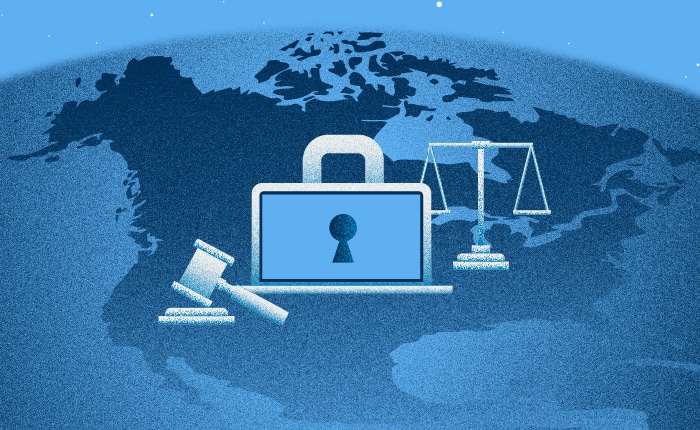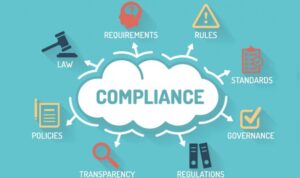Understanding Data Privacy Laws sets the stage for a deep dive into the intricate world of regulations and compliance, shedding light on the crucial aspects that govern the protection of personal information in today’s digital landscape.
From the fundamentals of data privacy legislation to the specific implications of GDPR and CCPA, this exploration promises to unravel the complexities of safeguarding data in an increasingly interconnected world.
Overview of Data Privacy Laws

Data privacy laws are designed to protect individuals’ personal information from being misused, mishandled, or accessed without authorization. These laws aim to give individuals control over their data and ensure that organizations handle it responsibly.
Purpose of Data Privacy Laws
Data privacy laws serve to safeguard sensitive information such as social security numbers, financial data, health records, and more from falling into the wrong hands. They help prevent identity theft, fraud, and unauthorized access to personal data.
Key Components of Data Privacy Legislation
- Consent: Individuals must give explicit consent for their data to be collected, processed, or shared by organizations.
- Data Minimization: Organizations should only collect the data necessary for a specific purpose and not retain it longer than needed.
- Data Security: Organizations must implement measures to protect personal information from breaches or unauthorized access.
- Transparency: Individuals have the right to know how their data is being used and by whom.
Importance of Complying with Data Privacy Laws
Complying with data privacy laws is crucial to maintaining trust with customers, avoiding hefty fines, and safeguarding sensitive information. Failure to comply can result in legal consequences, reputational damage, and loss of business.
General Data Protection Regulation (GDPR): Understanding Data Privacy Laws
The General Data Protection Regulation (GDPR) is a regulation in EU law on data protection and privacy for all individuals within the European Union and the European Economic Area. It also addresses the export of personal data outside these areas. The GDPR aims to give control to individuals over their personal data and simplify the regulatory environment for international business by unifying the regulation within the EU.
Scope of GDPR
- It applies to all companies processing the personal data of data subjects residing in the EU, regardless of the company’s location.
- GDPR covers a wide range of personal data, including basic information like name and address, as well as sensitive data like genetic, biometric, and health data.
- It requires companies to obtain explicit consent from individuals for data processing and to notify authorities of data breaches within 72 hours.
Examples of Personal Data under GDPR
- Name and address
- Identification numbers
- Location data
- IP address
- Health and genetic data
Consequences of Non-Compliance with GDPR
- Fines can be up to €20 million or 4% of the company’s global annual turnover, whichever is higher.
- Loss of customer trust and reputation damage.
- Legal actions and lawsuits from data subjects.
California Consumer Privacy Act (CCPA)
The California Consumer Privacy Act (CCPA) is a state statute designed to enhance privacy rights and consumer protection for residents of California.
Main Provisions of CCPA
- Right to know what personal information is being collected
- Right to know if personal information is being sold or disclosed and to whom
- Right to opt-out of the sale of personal information
- Right to access personal information held by businesses
- Right to request deletion of personal information
CCPA vs. GDPR
- CCPA is a state law in California, while GDPR is a regulation in the European Union.
- GDPR applies to all companies processing personal data of individuals in the EU, while CCPA applies to businesses that meet certain criteria and interact with California residents.
- GDPR requires businesses to have a legal basis for processing personal data, while CCPA gives consumers the right to opt-out of the sale of their personal information.
Impact of CCPA on Businesses
- Businesses need to update their privacy policies and practices to comply with CCPA requirements.
- Companies may need to invest in new data protection technologies and training for employees.
- Non-compliance with CCPA can result in significant fines and legal action.
Data Privacy Compliance Strategies

Ensuring compliance with data privacy laws is crucial for businesses to protect sensitive information and maintain trust with customers.
Steps for Businesses to Ensure Compliance
- Conduct a thorough data privacy audit to identify areas of non-compliance.
- Implement data protection measures such as encryption, access controls, and regular security updates.
- Educate employees on data privacy best practices and the importance of compliance.
- Establish clear data privacy policies and procedures for handling sensitive information.
Examples of Data Protection Measures
- Encrypting sensitive data both in transit and at rest to prevent unauthorized access.
- Implementing multi-factor authentication to verify the identity of users accessing sensitive information.
- Regularly updating security patches and software to address vulnerabilities and protect against cyber threats.
Role of Data Protection Officers in Compliance Strategies, Understanding Data Privacy Laws
Data Protection Officers (DPOs) play a crucial role in ensuring compliance with data privacy laws by overseeing data protection activities, conducting audits, and acting as a point of contact for data protection authorities.







